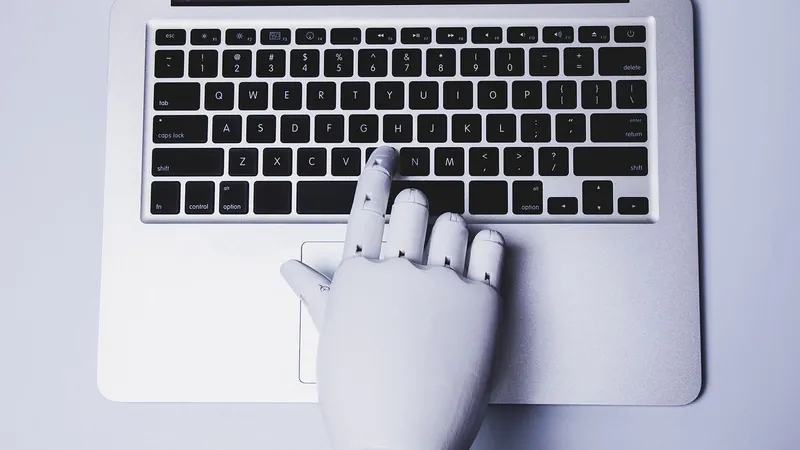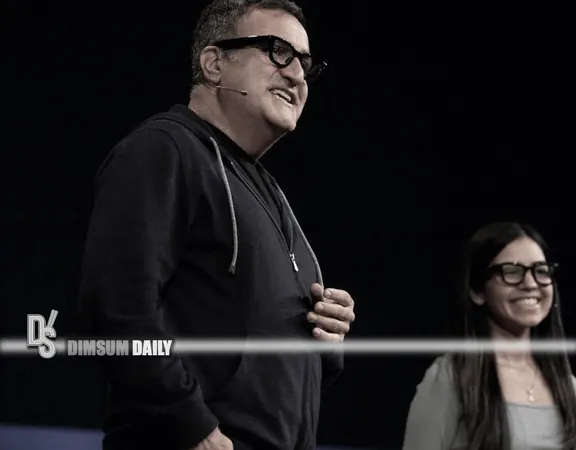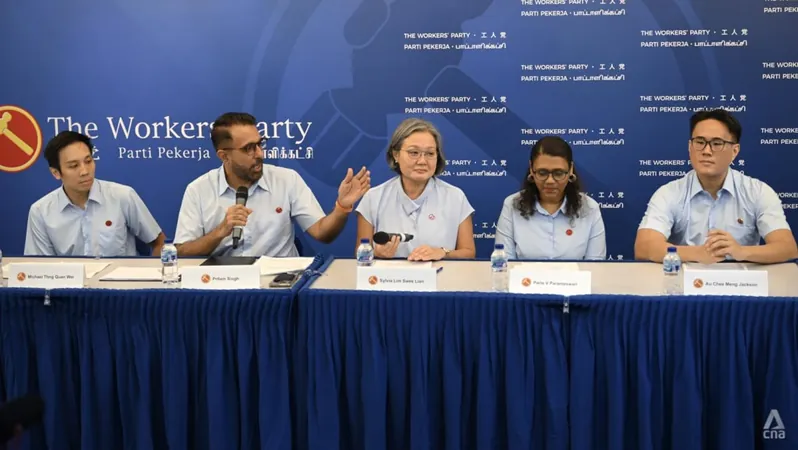
AI Outshines Humans in Meme Creation, But Is Humor Still a Human Domain?
2025-04-07
Author: John Tan
Introduction
In a surprising twist in the battle of creativity, a recent study has revealed that artificial intelligence (AI), specifically OpenAI's GPT-4o model, is capable of generating memes that are perceived to be funnier than those crafted by humans—raising eyebrows in the world of humor and creativity.
Study Overview
Conducted as part of a research project on co-creation between humans and large language models (LLMs), this study found that memes produced by the AI were rated higher in terms of humor, creativity, and shareability compared to those created by human participants alone or those who teamed up with the AI for assistance. Nonetheless, when it came to the absolute cream of the crop—those memes deemed the funniest—human-generated content still held the spotlight.
Conference Presentation
The research was presented at the 30th International Conference on Intelligent User Interfaces held in Cagliari, Italy, and the findings were shared on the arXiv preprint server on January 20, before being widely circulated across social media channels. Notably, Ethan Mollick, an academic and co-director of the generative AI lab at Wharton University of Pennsylvania, humorously remarked, "I regret to announce that the meme Turing Test has been passed."
Turing Test Context
The original Turing Test, developed by the British mathematician and computer scientist Alan Turing in 1950, aimed to determine whether machines could exhibit human-like intelligence based on their ability to engage in conversation indistinguishable from humans. While this study didn’t directly measure the indistinguishability of AI-generated memes from human creations, the results certainly provoke intriguing discussions about our understanding of creativity and humor, especially as participants often rated AI-generated memes more favorably.
Research Team and Goals
The research team, comprised of scientists from KTH Royal Institute of Technology, LMU Munich, and TU Darmstadt, purposely sought to explore the collaborative aspects of creativity rather than merely demonstrating AI's comedic prowess. They identified meme creation as an ideal benchmark for this exploration because it draws on cultural references, sarcasm, and minimal performance pressure—essential ingredients for successful humor.
Meme Creation Process
Meme culture, especially with its unique format of captioned images reflecting relatable situations or pop culture moments, has become a dominant medium for communication online. The study involved 124 participants tasked with generating captions for several classic meme templates spanning topics like work, food, and sports. Each participant either worked independently or in tandem with an AI assistant. The outcome was revealing—humans working solo created 335 memes, while hybrid human-AI teams produced 307, alongside an additional 150 memes generated solely by AI for comparative purposes.
Evaluation Phase
In a second phase involving 98 additional raters, the memes were assessed for humor, creativity, and shareability, ensuring anonymity regarding their origins. Across the board, AI-generated memes consistently outperformed those produced by humans or in collaboration with AI. However, the most humorous memes, often regarded as the best, primarily originated from human creators.
AI's Performance Factors
The researchers attributed the AI's predominant performance to its training on vast amounts of internet content, allowing it to tap into commonly appreciated humor. However, the subtleties and nuances of humor—requiring cultural context, shared experiences, and sometimes an unexpected twist—still escape the grasp of even the most advanced AI models.
Impact on Productivity
Interestingly, the study also touched upon the impact of AI assistance on productivity. Those who collaborated with AI produced a greater quantity of ideas, yet it was clear that volume did not guarantee quality. As the researchers delicately articulated, while LLMs enhance the brainstorming process, they do not necessarily elevate the creative standard, especially in humor, which remains a complex interplay of timing and contextual understanding.
Conclusion
In conclusion, while LLMs can produce memes that engage a wide audience, the research underscores the enduring importance of human creativity for crafting humor that resonates on a deeper emotional level—suggesting that our collective wit may still reign supreme in the realm of laughter. So, is AI really ready to take over the meme scene, or does it merely serve as a clever tool at humanity's creative disposal? Only time will tell!




 Brasil (PT)
Brasil (PT)
 Canada (EN)
Canada (EN)
 Chile (ES)
Chile (ES)
 Česko (CS)
Česko (CS)
 대한민국 (KO)
대한민국 (KO)
 España (ES)
España (ES)
 France (FR)
France (FR)
 Hong Kong (EN)
Hong Kong (EN)
 Italia (IT)
Italia (IT)
 日本 (JA)
日本 (JA)
 Magyarország (HU)
Magyarország (HU)
 Norge (NO)
Norge (NO)
 Polska (PL)
Polska (PL)
 Schweiz (DE)
Schweiz (DE)
 Singapore (EN)
Singapore (EN)
 Sverige (SV)
Sverige (SV)
 Suomi (FI)
Suomi (FI)
 Türkiye (TR)
Türkiye (TR)
 الإمارات العربية المتحدة (AR)
الإمارات العربية المتحدة (AR)